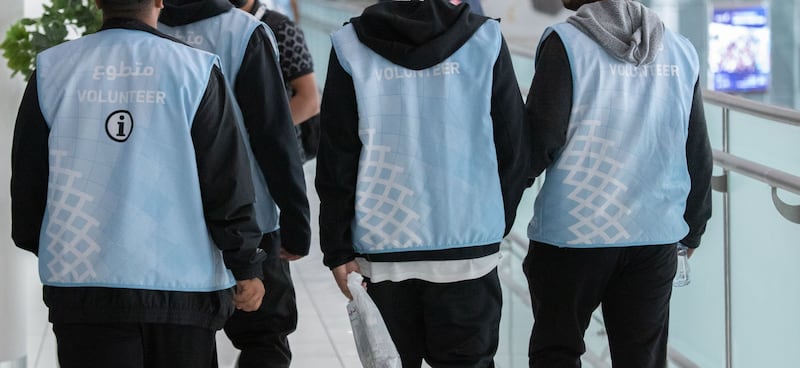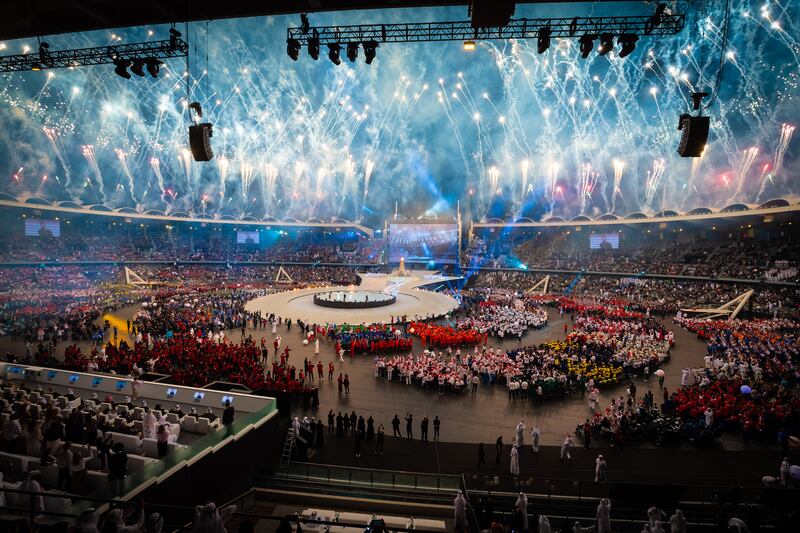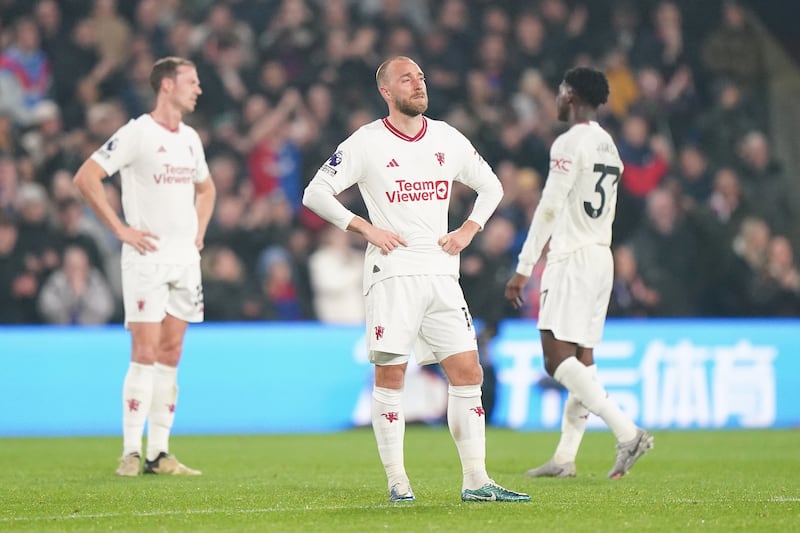The chief executive of Special Olympics Great Britain has said she hopes the 2019 World Games will leave a lasting impression on employment practices in the UK for the intellectually disabled.
The Games in Abu Dhabi was driven by thousands of volunteers, including those with intellectual disabilities (ID), offering their time to help the competition run smoothly.
And many hope that one of the successes of the World Games will be to see that sort of integration in employment continue in the athletes’ home countries.

The Special Olympics describes an intellectual disability as “a term used when a person has certain limitations in cognitive functioning and skills, including communication, social and self-care skills”.
Michelle Carney, chief executive of Special Olympics GB, said she hopes the UK Government will recognise just how employable those with intellectual disabilities are after the World Games.
“There are a lot of misconceptions about what intellectual disability is,” Ms Carney told the Press Association.
“People fear what they don’t know, unless you’ve been in front of someone with an intellectual disability and realised you can have a really great conversation.
“We’ve got something tangible to go to the Government with and say: ‘Actually this group of people with a learning disability are the most under-represented group within employment, and how can we at Special Olympics help with that?’
“I think we’ve got some good case stories here to show and evidence the difference [the Special Olympics movement] makes.”
One of those examples is Ian Harper, a Special Olympics GB athlete whose many roles include working as a global messenger for Special Olympics Europe Eurasia, spreading the message of the movement.
“Ian is a really good example of what can happen as a direct result of Special Olympics,” said Carney.
“He’s here representing the whole of Europe and Eurasia and is changing minds and changing lives, influencing others to say ‘actually, with Special Olympics we can do anything. We deserve the same rights as everybody else’.”
We're celebrating #InternationalHappinessDay in true @WorldGamesAD spirit with a shout out to everyone, including our incredible athletes, coaches, volunteers, sponsors and all of you who have made the Games memorable with your tremendous support! #BeUnified #MeetTheDetermined pic.twitter.com/KBhpWLazvU
— Special Olympics World Games Abu Dhabi 2019 (@WorldGamesAD) March 20, 2019
The Games has seen people with and without intellectual disabilities working together, competing in unified sporting events as well as helping run the competition.
And the example that the Special Olympics movement has set is already seeing tangible results in employment.
A partner of the Special Olympics, food company Kerry Group, has a number of volunteers from Great Britain and Ireland attending the World Games, and has also started recruiting those with intellectual disabilities.
“Our partnership with Special Olympics has had a phenomenal impact on our colleagues and our organisation,” said Samantha Wothers, head of employee engagement at Kerry Foods.
“We’ve got colleagues who are now sharing personal stories, people who have got a sibling, a niece, a nephew, a family member, a friend who has an intellectual disability.
“Previously they have never spoken about that, and what Special Olympics has done is opened up those conversations in our business.”

And for the volunteers with intellectual disabilities at the Games, the message that they can be an effective part of the jobs market is vital.
“I do think it’s an important message,” said one intellectually disabled volunteer working as a sports official.
“Otherwise I believe that if people don’t understand the message it may send us back in time rather than forward in time.”







